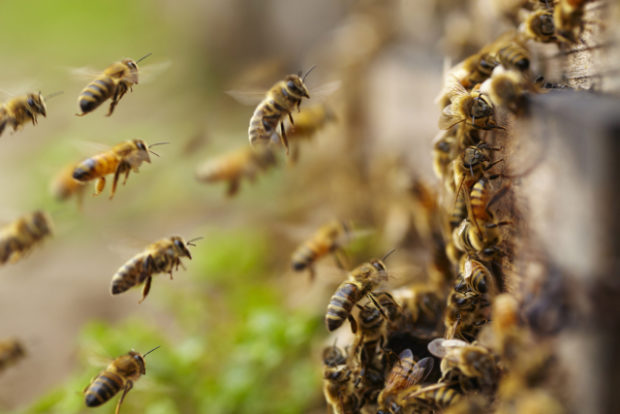Bee friendly: Five everyday things you can do to help protect bees

The use of pesticides is extremely harmful to honeybees. Image: bo1982/IStock.com
If you want to do your part in the drive to protect our winged friends, who play such a crucial role in our ecosystems as pollinators, here are a few simple ideas on how to help protect bees and promote a more bee-friendly environment.
Buy local honey Buying locally produced honey funds local beekeepers, who help support and preserve local honeybee populations.
Cultivate a favorable habitat At first glance, urban areas aren’t a great habitat for wild and honey bees. However, there are ways to improve the bee-friendliness of your urban environment. For instance, to grow honey-producing plants without a garden, all you need is a windowbox. Along with their attractive appearance, geraniums, wisteria, lavender and lilac are full of nectar, which is the main food source for bees. You can also provide a nesting area for wild bees (don’t worry, they are solitary, unlike their domesticated cousins) for free — just create a small pile of sand and dead wood, which is all they need to build a comfortable nest.
Avoid using pesticides Plants treated with pesticides and fungicides are toxic — sometimes even fatal — for bees. But there are plenty of other ways to prevent or control pests in your garden, such as nets and traps, or relying on other useful species and microorganisms. You can also find pest-control products that are less dangerous to bees, which are usually labeled as such.
Sponsor a hive If you don’t have the specific skills and space to own your own hive, you can always contribute to the preservation of honeybees, which have been negatively affected by the use of chemical products in traditional agriculture, via a crowdfarming program. Many organizations offer schemes that enable you to provide shelter for 40,000 to 60,000 bees, either as an individual sponsor or as part of a group. In exchange, you will receive an annual delivery of honey produced by your adopted beehive.
Get tough with Asian hornets This invasive species, which has been increasingly prevalent across Europe in recent years, actually hunts honeybees. Though Asian hornets are not quite as deadly for humans, if you find one of their nests in your garden you should consider calling in a professional. If you see a nest in a public area like a park, you should contact local authorities. NVG
RELATED STORIES:
Beluga whales used as show animals in China released into sea sanctuary
Canada pandas running on empty as bamboo dries up